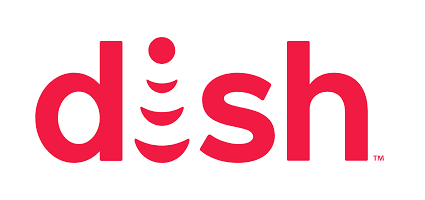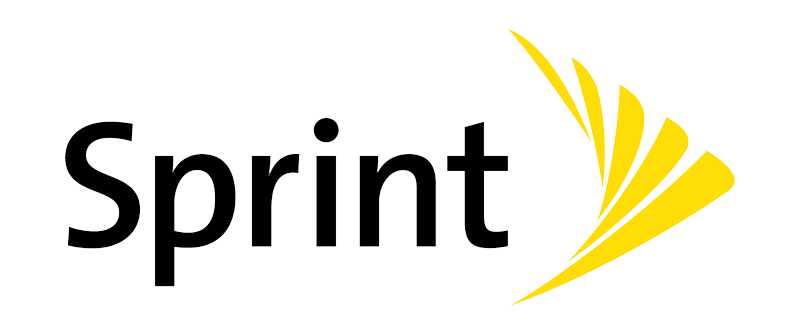Our goal is to share information and products that are truly helpful to renters.
If you click on a link or buy a product from one of the partners on our site, we get paid a little bit for making the introduction. This means we might feature certain partners sooner, more frequently, or more prominently in our articles, but we’ll always make sure you have a good set of options. This is how we are able to provide you with the content and features for free. Our partners cannot pay us to guarantee favorable reviews of their products or services — and our opinions and advice are our own based on research and input from renters like you. Here is a list of our partners.
Bill negotiation services compared
How to get help reducing your monthly expenses
Ever looked at your bills and wondered if you could pay less without having to change your provider? Turns out there are probably several services you subscribe to that can offer you a better price. You just have to ask. But if dealing with confusing phone trees, hanging out on hold and talking with customer service isn’t how you’d like to spend a couple of hours, don’t despair. Somebody wants to do it for you! And they are…. bill negotiation services.
Yep, bill negotiation services want to take on the challenge of (re)negotiating your contract for services like your cable, phone, and internet. Getting familiar with who the best companies are and how they work will help you decide if you’d like them to get rolling on your behalf. There are also a number of companies that specialize in renegotiating medical bills. More on that below.
What is a bill negotiation service?
Who are these magic companies and what do they do? The idea is this: their representatives get on the phone with your service provider and try to negotiate a better price for you. If they’re able to get a reduction in price, they take a “cut” of the savings.
This cut is typically calculated as a percentage of the total savings you receive over one to two years (depending on the length of your contract with the service provider).
If you accept the new price they’ve negotiated for you, they get their cut of the savings upfront or monthly by charging your credit card. If they aren’t successful in negotiating a price reduction for you, then you don’t pay them anything.
What types of bills can be negotiated?
Not every bill you pay is necessarily a good fit for bill negotiation. Mortgage and auto loans, for example, have to be formally refinanced, which involves a new application, lots of paperwork, and credit checks. The same goes for student loans (we recommend checking out a company like SoFi or Earnest for help with these).
The types of bills that are a good fit are the ones that frequently run promotions and try to get you to switch providers. These include:
- cable or satellite dish
- internet service
- cell phones
- satellite radio
- streaming services
- security protection
- identity or credit monitoring











Five bill negotiation service companies to consider
Here are five bill negotiation companies that focus on cable/satellite, internet, cell phone, home security, and other non-medical services. Make sure to do your research so you understand how their fee models work. We recommend digging around for customer reviews, too.
| Company | Description | Price |
 | Rocket Money offers bill negotiation services, credit monitoring, and spending insights. They specialize in finding and cancelling unwanted subscriptions and claim to have cancelled over one million unwanted subscriptions. | Basic app is free to use with optional services priced on a sliding scale that you choose from $3-$12 a month |
 | Billshark says they can lower your bills by 25% in just two minutes. They have a helpful savings estimator tool on their website, though you have to provide your name, email, and phone number to use it. | 40% of the total monthly savings for your service contract, up to 24 months. Accepts monthly payments for 6 months with a $9 service fee. |
 | BillAdvisor says their average customer saves $830 (though they don’t specify over what time period–a year, three years?) This company was the only one that offered a monthly membership fee option instead of taking a percentage cut of your overall savings. | A flat $12.99 per month includes unlimited negotiations. (And if they don’t save you $300, they give you your money back.) OR 50% of the total monthly savings for the length of your service contract |
 | Billcutterz says you can save ‘hundreds’ using their service. If you have to cancel the account with your service provider (like for a household move) before all your savings have been received, they will refund the prorated amount of money you paid in advance. | 50% of the total monthly savings for the length of your service contract. If you pay them their cut of the savings up front, you get a 10% discount. |
| Billfixers says their customers save an average of $300. This company was the most transparent with their pricing on their site. Their default is to take their cut on a monthly basis unless you specify otherwise. | 50% of the total monthly savings for your service contract, up to 12 months. Accepts monthly payments | |
 | Trim says they’ve saved customers more than $1 million in a month. They offer an additional service that identifies and cancels any subscriptions you no longer want. If you’re struggling to find their pricing, however, you’re not alone–we had to click on the FAQ in the fine print at the bottom of the homepage to find it. | 33% of the total monthly savings for your service contract, up to 12 months. Monthly payments upon request. Offers premium membership for $10/month that includes extra benefits. Offer a savings account, too. |
Medical bill negotiation companies
If you have a medical bill that you’re trying to pay off, these companies might be helpful. They are focused entirely on renegotiating what you owe (often called medical debt) to medical providers.
| Company | About | Price |
| Claim Medic | Claim Medic works with insurance and medical providers to investigate errors and overcharging and to negotiate lower bills. Unclear if they work with people who are uninsured. | A flat fee of $500 upfront and a one-time charge of 5% of total savings for each medical bill. |
| H.H.C. Group | H.H.C. Group says they save their customers 5-20% off their total bill. They require prepayment of almost their entire 355 fee upfront but will refund you if they’re unable to negotiate any savings for you. Will work with the uninsured. | A one-time charge of 35% of total savings per medical bill. Must have a minimum balance of $1000 owed. |
| Medical Cost Advocate | Medical Cost Advocate says they save their customers an average of 20-50%. Will work with the uninsured. | A one-time, upfront charge of 35% of total savings per medical bill. Must have a minimum balance of $600 owed. |
| Resolve | Resolve says they can save clients up to 90% off of their medical bills. Unclear if they work with uninsured clients. Note: One of their employees listed on their webpage is also the owner of ClaimMedic. | A flat fee of $99 upfront plus a one-time charge of 10% of total savings per medical bill. Unclear if there is a minimum balance owed to work with them. |
| Alliance of Claims Services Professionals | Directory of professionals who negotiate medical bills. | Fees vary. |
How bill negotiations works
Although the steps might vary a bit from company, generally, here’s what to expect:
- Sign up and create an account. Select which services you want them to try to negotiate.
- Upload your bills. In some cases, the company may request the credentials to your account so they can download bills for you.
- Authorize them to negotiate on your behalf. Some providers require a three-way conversation between you, the negotiation company, and the service provider. Others will require customer identifying information that may include your social security number, date of birth, account number and PIN (if one is used with the account), and possibly your bank account information. (Bill negotiation companies use encrypted software to protect your information internally, but you still have to be comfortable sharing this information with them in the first place. Unfortunately, without your customer information, the negotiator may not be able to negotiate with the service provider on your behalf.)
- They start negotiating. The bill negotiation company will start talking with the service providers to see what kind of savings they can get for you.
- You each get some savings. If they’re successful, you’ll see a reduction of cost on your next bill, and the negotiating provider will take their cut in accordance with how they structure their fees.
- Check back again. Some bill negotiation companies offer a subscription service to help monitor your accounts and renegotiate savings.
Example bill negotiation
| BEFORE Cable bill | AFTER Cable bill | SAVINGS | SAVINGS -— NEGOTIATION FEE |
| $60 per month 12 months left | $35 per month 12 months left | $25 per month x 12 = $300 | $300- (40% fee or $120) = $180 net savings |
The amount of money you save varies depending on the skills of the negotiator, as well as the average savings that their other customers have generally received for the specific bill type.
Make sure to contact the negotiation company directly to get a sense of the range of savings you can specifically expect — don’t just rely on the savings amount advertised on their websites.
Questions to ask when deciding on a bill-negotiation service
All the bill negotiation companies we explored had something in common: They promised a lot but were not always clear about their pricing. Nearly every company takes a percentage of the total savings they negotiate for you; it’s important to clarify exactly how this works before you sign up. Ask them:
- What percentage of the savings do you take?
- What period of time is the fee based on? (In the example above, it was based on 12 months.)
- Do you charge a membership fee? Can I elect not to become a member?
- Do you have any other fees?
- When do I have to pay you the savings? (Some require this shortly after the negotiation before you’ve received the benefits and others will allow for monthly payments.)
- What forms of payment do you accept? Do I need a debit or credit card to work with you?
- Check out the Bill Negotiation Service’s review on consumeraffairs.com to make sure they’re still in good standing and reviews are overall positive for savings results, service, and business practices.
Now that you have read what you need to know about service provider and medical bill negotiation services, you should have the tools necessary to research which company will work best for you.
Negotiating lower bills yourself
If you’re game to tackle negotiating a better price yourself, have at it! Generally, it costs an internet or phone company more to acquire a brand new customer than it does to keep you around, so you do have some bargaining power.
Just make sure to do your homework first so you can increase your chances of getting a better rate. Check out our Steps to negotiate lower monthly bills article for simple steps and examples.
Is bill negotiation right for you?
Bill negotiation companies can help you reduce the monthly cost of services like internet, cable, and home security. These companies gather information about you and your bills and get permission to work on your behalf. Then they contact each service provider to see if they can negotiate a lower price or reduce how much you owe and they take a percentage of your savings.
Usually, they require you to pay them this amount directly, either upfront or on a monthly basis. Make sure to do your research on pricing structures before getting started. Then sit back and see what they can do for you!
Your renters rights, in your state.
Explore what you need to know.
- Alabama Renters Rights
- Alaska Renters Rights
- Arizona Renters Rights
- Arkansas Renters Rights
- California Renters Rights
- Colorado Renters Rights
- Connecticut Renters Rights
- Delaware Renters Rights
- Florida Renters Rights
- Georgia Renters Rights
- Hawaii Renters Rights
- Idaho Renters Rights
- Illinois Renters Rights
- Indiana Renters Rights
- Iowa Renters Rights
- Kansas Renters Rights
- Kentucky Renters Rights
- Louisiana Renters Rights
- Maine Renters Rights
- Maryland Renters Rights
- Massachusetts Renters Rights
- Michigan Renters Rights
- Minnesota Renters Rights
- Mississippi Renters Rights
- Missouri Renters Rights
- Montana Renters Rights
- Nebraska Renters Rights
- Nevada Renters Rights
- New Hampshire Renters Rights
- New Jersey Renters Rights
- New Mexico Renters Rights
- New York Renters Rights
- North Carolina Renters Rights
- North Dakota Renters Rights
- Ohio Renters Rights
- Oklahoma Renters Rights
- Oregon Renters Rights
- Pennsylvania Renters Rights
- Rhode Island Renters Rights
- South Carolina Renters Rights
- South Dakota Renters Rights
- Tennessee Renters Rights
- Texas Renters Rights
- Utah Renters Rights
- Vermont Renters Rights
- Virginia Renters Rights
- Washington Renters Rights
- West Virginia Renters Rights
- Wisconsin Renters Rights
- Wyoming Renters Rights
- Washington, D.C. Renters Rights
